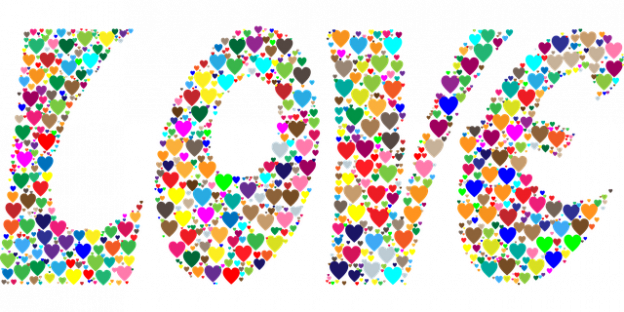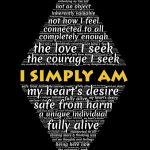Relationships are one of the most important aspects of our lives, yet they can be incredibly challenging at times. We all crave love, acceptance, and understanding from others, yet we often struggle to find these things in our relationships.
The truth is that building strong and healthy relationships takes effort and commitment. It requires us to understand ourselves better, communicate effectively with others, and develop empathy and compassion towards those around us.
In this article, I will guide you through some practical tips and strategies that can help you build deeper connections with your loved ones, friends, colleagues or anyone else who crosses your path. Whether you’re seeking to strengthen an existing relationship or cultivate new meaningful connections, by following these principles you’ll be well on your way to experiencing more fulfillment and joy in your life.
Understanding Your Own Needs And Values
 Life is like a puzzle, and to build better relationships, we must first understand our own needs and values. Just as every piece of the puzzle has its place, understanding ourselves means identifying what makes us whole.
Life is like a puzzle, and to build better relationships, we must first understand our own needs and values. Just as every piece of the puzzle has its place, understanding ourselves means identifying what makes us whole.
Self-reflection plays a crucial role in this process. We need to take time for introspection so that we can identify what matters most to us.
Mindfulness practice can help us to be more present with ourselves and others. It allows us to focus on the moment without judgment or distraction. By being mindful, we become aware of our thoughts and feelings, which helps us to communicate more effectively with those around us.
Furthermore, mindfulness enhances self-awareness by helping us observe how our actions impact not only ourselves but also the people in our lives.
When we know who we are at our core, it becomes easier to make decisions that align with our values. Understanding your own needs and values means knowing when something doesn’t feel right or when you need to set boundaries.
This knowledge empowers you to lead an authentic life based on what truly matters to you rather than living according to someone else’s expectations.
Remember that building better relationships starts within yourself. Take the time for self-reflection and incorporate mindfulness into your daily routine. Once you have a clear understanding of your own needs and values, you will find that your connections with others deepen naturally without effort or strain.
Enhancing Communication Skills
Effective communication is the key to building healthy and fulfilling relationships. It’s not just about speaking, but also listening actively. Active listening involves paying attention to what others are saying without interrupting or judging them. This means focusing on their words, tone of voice, and body language.
Nonverbal communication plays a significant role in our daily interactions with others. Our facial expressions, gestures, posture, and eye contact can convey messages that we might not even be aware of. As such, it’s essential to pay attention to these cues when communicating with someone else. For example, crossed arms could indicate defensiveness or discomfort while maintaining eye contact shows interest and engagement.
To enhance your communication skills further, practice mindfulness during conversations. Mindfulness involves being fully present in the moment and attentive to the person you’re talking to. Avoid distractions like checking your phone or thinking about what you’ll say next. Instead, focus on understanding what they’re trying to communicate and respond appropriately.
Remember that effective communication takes time and effort to develop. By practicing active listening, paying attention to nonverbal cues, and being mindful during conversations, you’ll build stronger connections with those around you.
These skills will help you navigate difficult situations better and foster meaningful relationships for personal growth and happiness.
Developing Empathy And Compassion
In enhancing communication skills, we learned that effective communication is key to building strong relationships. But did you know that according to a study by the University of California, San Francisco, people who feel lonely are 26% more likely to die earlier? This just shows how important it is to cultivate meaningful connections with others.
One way to do this is by developing empathy and compassion. Empathy involves understanding and sharing someone else’s feelings while compassion involves feeling concern for their well-being. By practicing mindfulness and improving self-awareness, we can become better at both.
Here are four ways to develop empathy and compassion in your relationships:
1. Listen actively: Pay attention to what the other person is saying without interrupting or judging them.
2. Put yourself in their shoes: Try to understand things from their perspective even if you don’t agree with them.
3. Show kindness: Small acts of kindness such as offering a listening ear or doing something thoughtful can go a long way in building trust and connection.
4. Practice gratitude: Take time each day to appreciate the people in your life and express your appreciation towards them.
By incorporating these practices into our daily lives, we can build deeper connections with those around us and experience personal growth and happiness along the way.
Remember, cultivating empathy and compassion takes time and effort but the rewards are worth it!
Building Trust And Respect
When it comes to building better relationships, trust and respect are essential. Without them, it’s difficult to establish a strong connection with others.
One way to build trust is by being honest and transparent in your communication. Speak truthfully, even if the conversation is uncomfortable. Letting someone know where you stand on an issue or how something made you feel can help create a foundation of trust.
Another important aspect of building trust and respect is establishing boundaries. Boundaries are guidelines that set limits for acceptable behavior in a relationship. They’re necessary because they protect our well-being while also ensuring mutual understanding between individuals.
When setting boundaries, communicate clearly what actions are unacceptable and why. If someone crosses those lines, address the situation professionally without blame or defensiveness.
Handling conflicts professionally is another key factor in building healthy relationships based on trust and respect. Conflicts will arise inevitably; it’s how we handle them that matters most. Instead of avoiding conflict altogether, approach disagreements with empathy and curiosity rather than anger or frustration.
Listen actively to the other person’s point of view before sharing your own perspective. Try to seek common ground instead of focusing solely on differences.
Building trust and respect takes time but is worth the effort for personal growth and happiness. By communicating honestly, setting clear boundaries, and handling conflicts professionally, you’ll be able to develop deeper connections with others built on mutual understanding and respect – ultimately leading to stronger relationships overall.
Nurturing Relationships Over Time
Relationships are like gardens. They require constant tending, nurturing and care to thrive over time. Just as a garden requires regular watering, removing weeds and pruning of dead leaves for growth, relationships need consistent prioritization and setting boundaries to flourish.
One way to prioritize time is by scheduling dedicated quality time with loved ones. This could be anything from weekly dinners together or taking a walk in the park on Sundays. The key is to make sure that this dedicated time is uninterrupted and free from distractions such as phones or work-related emails.
Setting boundaries can also help nurture relationships. It’s important to communicate openly about what you’re comfortable with and what your limits are when it comes to things like personal space or privacy. By doing so, you’ll establish mutual respect which will benefit both parties moving forward.
Remember, building strong relationships takes effort and consistency but the rewards are immeasurable. By prioritizing time and setting healthy boundaries, you’ll create an environment where love, trust, and happiness can grow organically over time without any external influences getting in the way.
How Do I Deal With Toxic Relationships?
Identifying toxicity is the first step in dealing with toxic relationships. It’s important to recognize when a relationship becomes unhealthy and starts affecting your mental health, self-esteem, or overall well-being.
Once you’ve identified the signs of toxicity, it’s time to set boundaries. Boundaries are essential in any relationship as they establish clear guidelines for behavior and communication.
Self-care also plays a vital role in managing toxic relationships. Take care of yourself by engaging in activities that bring joy and relaxation into your life.
Remember, it’s okay to end a toxic relationship if it no longer serves you. I encourage my clients to prioritize their emotional and physical safety above all else.
Can I Still Build A Strong Relationship With Someone Who Has Different Values Than Me?
Navigating differences and finding common ground are essential when building a strong relationship with someone who has different values than you.
I encourage open communication and active listening to understand each other’s perspectives without judgment or criticism.
Acknowledge that disagreements will arise, but focus on the similarities rather than the differences.
Find shared interests and activities that align with your values while respecting each other’s choices.
Remember, it is not about changing the person but learning how to coexist peacefully despite differing beliefs.
With patience, respect, and understanding, building a strong relationship with someone whose values differ from yours is possible.
What Are Some Common Barriers To Effective Communication In Relationships?
I often see misunderstandings as the biggest barrier to effective communication in relationships.
It’s easy for us to jump to conclusions and assume we know what our partner is thinking or feeling without truly listening and understanding their perspective.
Building empathy and understanding can go a long way in overcoming these hurdles.
This means actively trying to put yourself in your partner’s shoes, asking questions, and being open-minded.
By doing so, you’ll be able to communicate more effectively and build stronger connections with those around you.
How Can I Apologize And Make Amends For Hurting Someone In A Relationship?
Effective apologies are crucial in rebuilding rapport and strengthening relationships. I often advise my clients to start by acknowledging their mistake and taking responsibility for their actions.
It’s important to show genuine remorse and empathy towards the person you’ve hurt. Offering a sincere apology can help mend the damage caused and demonstrate your commitment to making things right.
Additionally, it’s essential to listen actively to the other person’s feelings and perspectives without becoming defensive or dismissive of their emotions. By taking these steps, you can work towards repairing the trust that was broken and create a foundation for healthier communication moving forward.
Is It Possible To Rebuild Trust After It Has Been Broken In A Relationship?
Is it possible to rebuild trust after it’s been broken in a relationship? The answer is yes, but it takes work.
Communication and consistency are key ways to start rebuilding trust. It’s important to have open and honest conversations about what happened and how you plan on moving forward. Consistency means following through with your actions and words over time so that the other person can see that you’re committed to making things right.
The healing process also involves forgiveness and setting boundaries. Forgiving someone doesn’t mean forgetting what happened, but it does mean letting go of resentment and anger towards them. Boundaries help establish safety and protection while rebuilding trust.
I encourage my clients to take these steps towards healing if they want to rebuild their relationships after a breach of trust has occurred.
Well, folks, we’ve covered a lot of ground today. We talked about how to handle toxic relationships and whether it’s possible to build strong connections with those who hold different values than us. We explored some common barriers that can get in the way of effective communication and ways to make amends for hurting someone.
But let me ask you this: what if I told you that all these tips and tricks won’t matter one bit unless you first learn to love yourself?
The irony is that while building better relationships may be your goal, true personal growth and happiness comes from within.
So take care of yourselves first, and watch as your connections with others naturally flourish.
And always remember: I’m here cheering you on every step of the way!






